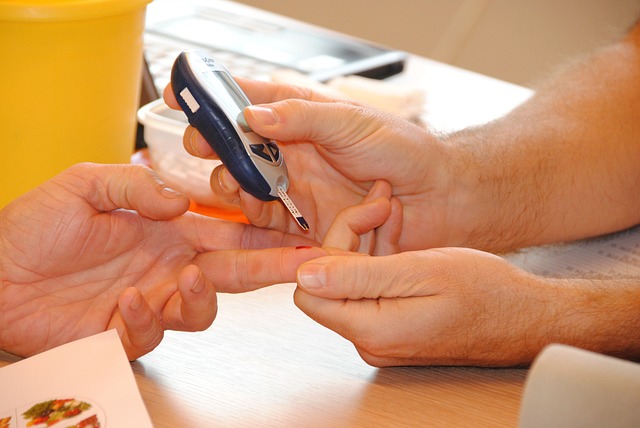Introduction
If you have diabetes, your blood sugar levels are always something you have to be aware of. But sometimes, your blood sugar can start to rise without any obvious signs or symptoms. This is called hyperglycemia, and it can be a real problem if it’s not caught early.
There are a few things that can cause your blood sugar to rise without any obvious symptoms. One is if you’re not taking your insulin properly. If you’re not taking enough insulin, your body can’t process the sugar in your blood properly, and it starts to build up. This can happen if you skip doses of insulin, or if you don’t take it correctly.
Another reason your blood sugar might be rising unnoticed is if you’re sick or under stress. When you’re sick, your body releases hormones that make it harder for insulin to work properly. And when you’re stressed, your body also releases hormones that can raise your blood sugar levels.
If you think your blood sugar might be rising unnoticed, there are a few things you can do to help bring it down. First, check your blood sugar levels right away. If they’re high, give yourself an injection of fast-acting insulin. Then check again in 15 minutes to see how your levels are doing. If they’re still high, repeat the injection.
You should also call your doctor right away if this happens. They may need to adjust your insulin doses or put you on a different type of
What is Blood Sugar?
There are a lot of reasons your blood sugar might be rising unnoticed. Here are some of the most common reasons:
You’re eating too many carbs – When you eat foods that contain carbohydrates, your body breaks them down into glucose, which is then released into your bloodstream. If you eat more carbs than your body can use for energy, the excess glucose will be stored in your liver and muscles in the form of glycogen. When your glycogen stores are full, the excess glucose will be converted to fat. Over time, this can lead to weight gain and insulin resistance.
You have prediabetes or diabetes – If you have prediabetes or diabetes, your body isn’t able to properly process glucose. This can cause your blood sugar levels to rise.
You’re under stress – Stress can cause your body to release hormones like cortisol and glucagon, which can raise blood sugar levels.
You’re not getting enough sleep – Lack of sleep can disrupt your body’s ability to regulate blood sugar levels.
You have an infection or illness – Having an infection or illness can cause your blood sugar levels to rise as your body tries to fight off the infection.
Causes of Unnoticed High Blood Sugar
There are several potential causes of unnoticed high blood sugar. One possibility is that the body is not producing enough insulin. Insulin is a hormone that helps to regulate blood sugar levels. If the body is not producing enough insulin, blood sugar levels can rise. Another possibility is that the body is resistant to insulin. This means that even though the body is producing insulin, it is not working properly. Insulin resistance can be caused by a variety of factors, including obesity, stress, and certain medications. Finally, another possible cause of unnoticed high blood sugar is that the person has an underlying medical condition that causes their blood sugar to rise. Conditions that can cause high blood sugar include diabetes, pancreatitis, and Cushing’s syndrome.
- Stress
Stress is one of the most common causes of high blood sugar levels. When you’re stressed, your body releases hormones that can make your blood sugar levels rise. Stress can also make it harder for your body to process insulin, which can lead to diabetes.
There are a few things you can do to manage stress and keep your blood sugar levels in check. Exercise is a great way to relieve stress and improve your overall health. Meditation and deep breathing exercises can also help you relax and manage stress. If you’re having trouble managing stress on your own, talk to your doctor or a counselor about ways to get help.
- Sedentary Lifestyle
When it comes to managing blood sugar, one of the most important things you can do is maintain an active lifestyle. Unfortunately, this can be difficult for many people who have sedentary jobs or live a sedentary lifestyle. Studies have shown that sitting for long periods of time can lead to increased blood sugar levels, even if you are not eating anything sugary.
There are a few things you can do to combat this issue. First, try to get up and move around as much as possible throughout the day. Even just a short walk around the office or taking a few minutes to stretch your legs can make a big difference. Additionally, make sure to schedule in some time for regular exercise – even if it’s just a brisk walk around the neighborhood. Exercise helps to lower blood sugar levels and can also help you lose weight, which can further improve blood sugar control.
- Poor Diet/High Carbohydrates Consumption
A diet high in carbohydrates can raise your blood sugar levels. This is because the body breaks down carbohydrates into sugar, which then enters the bloodstream. Consuming too many carbohydrates can cause your blood sugar to rise too high.
There are a few things you can do to avoid this:
-Choose complex carbohydrates over simple carbs. Complex carbs are higher in fiber and take longer to break down, which means they don’t cause as big of a spike in blood sugar levels.
-Limit your intake of refined carbs like white bread, pastries, and sugary cereals. These foods are quickly broken down into sugar and can cause your blood sugar to spike.
-Make sure you’re getting enough protein and fat. Both of these nutrients help slow down the absorption of carbohydrates, preventing blood sugar spikes.
- Lack of Sleep
There are a few reasons why you might be struggling to get enough sleep. Maybe you have a lot on your mind and find it difficult to relax at night. Or, you could be dealing with an underlying health condition that makes it hard to fall or stay asleep. Whatever the reason, not getting enough shut-eye can take a serious toll on your health—including your blood sugar levels.
In fact, research has shown that people who don’t get enough sleep are more likely to have higher blood sugar levels. One study even found that people who slept less than six hours per night had fasting blood sugar levels that were about 20% higher than those who slept for seven or more hours.
If you’re struggling to get enough sleep, there are a few things you can do to help yourself catch some Z’s. First, try to stick to a regular sleep schedule as much as possible. This means going to bed and waking up at the same time each day, even on weekends. Creating this type of routine can help train your body to wind down and be ready for sleep at the same time each night.
You should also create an environment in your bedroom that promotes relaxation and comfortable sleeping conditions. This means keeping the room dark, quiet, and cool—ideally between 60 and 67 degrees Fahrenheit. And if you have any electronics in your bedroom, make sure they’re turned off or at least dimmed before you go to bed
- Medical Conditions
There are a few medical conditions that could be the reason your blood sugar is rising unnoticed. One condition is called insulin resistance. This means that your body doesn’t use insulin as effectively as it should to lower your blood sugar. Insulin resistance can be caused by obesity, polycystic ovarian syndrome (PCOS), and gestational diabetes. Another condition that could cause your blood sugar to rise is an underactive thyroid gland (hypothyroidism). This condition slows down the body’s metabolism, which can lead to weight gain and high blood sugar levels. If you have any of these conditions, it’s important to talk to your doctor so you can get proper treatment.
Symptoms of High Blood Sugar
If you have diabetes, or are at risk for developing diabetes, it’s important to be aware of the symptoms of high blood sugar. High blood sugar can damage your organs and lead to serious health complications, so it’s important to catch it early and take steps to bring your levels back down.
The most common symptoms of high blood sugar are increased thirst and urination, fatigue, and blurred vision. If you notice any of these symptoms, check your blood sugar levels right away and take steps to lower them if they are high.
Other less common symptoms of high blood sugar include nausea, vomiting, stomach pain, shortness of breath, headache, anxiety, and sweating. If you experience any of these symptoms, it’s important to seek medical help right away as they could be indicative of a more serious problem.
If left untreated, high blood sugar can lead to serious health complications such as heart disease, stroke, kidney damage, nerve damage, and blindness. Therefore, it’s important to be aware of the symptoms of high blood sugar and take steps to lower your levels if they start to rise.
How to Monitor and Control Blood Sugar Levels
If you are concerned about your blood sugar levels, there are a few things that you can do to monitor and control them. First, it is important to know what your fasting blood sugar level is. This can be done by checking your blood sugar first thing in the morning before you eat or drink anything. If your fasting blood sugar is higher than normal, it may be a sign that you have diabetes or prediabetes.
If you suspect that your blood sugar might be rising, you can also check your levels 2 hours after eating a meal. To do this, finger-stick test your blood sugar using a glucometer. If your blood sugar is over 140 mg/dL two hours after eating, this may be a sign of diabetes or prediabetes.
There are a few lifestyle changes that can help to control blood sugar levels. First, try to eat a healthy diet that includes plenty of fruits, vegetables, and whole grains. It is also important to get regular exercise and maintain a healthy weight. If you smoke, quitting smoking will also help to control your blood sugar levels. Finally, if you have diabetes or prediabetes, it is important to monitor your blood sugar levels closely and take medication as prescribed by your doctor
- Dietary Changes
If you’re struggling to maintain healthy blood sugar levels, it may be time to take a closer look at your diet. Here are some dietary changes that can help regulate blood sugar:
- Cut back on refined carbs. Refined carbs like white bread, pastries, and sugary drinks can cause spikes in blood sugar levels. Instead, opt for complex carbs like whole grains, fruits, and vegetables.
- Increase your fiber intake. Fiber helps slow down the absorption of sugar into the bloodstream, helping to keep blood sugar levels steady. Good sources of fiber include beans, legumes, and whole grains.
- Avoid processed foods. Processed foods are often high in sugar and unhealthy fats, both of which can contribute to higher blood sugar levels. Choose fresh or minimally processed foods instead.
- Limit alcohol consumption. Alcohol can interfere with the body’s ability to process glucose, leading to elevated blood sugar levels. If you drink alcohol, do so in moderation and always with a meal.
- Get regular exercise. Exercise helps the body use insulin more effectively, which can help keep blood sugar levels under control. Aim for at least 30 minutes of moderate exercise most days of the week.
- Exercise
If you’re like most people, you probably associate high blood sugar with eating too much sugar. But there are other factors that can contribute to higher-than-normal blood sugar levels. Here are some reasons your blood sugar might be rising unnoticed – and what you can do to stop it.
- Exercise
You might not think of exercise as a factor that can impact your blood sugar, but it actually can. When you exercise, your body breaks down glycogen (stored glucose) for energy. This can cause your blood sugar to drop temporarily. However, once you stop exercising, your body will start to replenish its glycogen stores – which can cause your blood sugar to spike.
If you’re going to exercise, it’s important to do so after eating a meal or snack that contains carbohydrates. This will help ensure that your blood sugar doesn’t drop too low during exercise. And be sure to drink plenty of water during and after exercise to stay hydrated.
- Stress
Stress is another common trigger for high blood sugar levels. When you’re stressed, your body releases hormones like cortisol and glucagon. These hormones signal your body to release stored glucose for energy – which can lead to a spike in blood sugar levels.
To keep stress-related spikes in blood sugar under control, it’s important to find healthy ways to manage stress. Some good options include regular exercise, deep breathing exercises, and meditation
- Supplements
As we age, our bodies become less efficient at using the insulin that we produce. This can cause our blood sugar to rise even if we are eating the same amount of food and exercising the same amount as we did when we were younger. To combat this, many people take supplements that help their bodies use insulin more efficiently. Some common supplements include:
- Chromium: This mineral helps the body metabolize carbohydrates and fats, which can help stabilize blood sugar levels.
- Cinnamon: This spice has been shown to help lower blood sugar levels by improving insulin sensitivity.
- Alpha-lipoic acid: This antioxidant has been shown to improve insulin sensitivity and help lower blood sugar levels.
If you are concerned about your blood sugar rising unnoticed, talk to your doctor about whether or not taking supplements might be right for you.
Conclusion
High blood sugar levels can cause a whole host of issues, from fatigue to diabetes. However, the good news is that there are ways to help prevent your blood sugar from rising unnoticed. By following the 10 tips outlined in this article you can take proactive steps towards keeping your blood sugar at healthy levels and avoiding any negative consequences. With regular monitoring and lifestyle changes such as diet control, exercise and stress management, you should be able to keep your blood sugar under control naturally without having to rely on medication.








